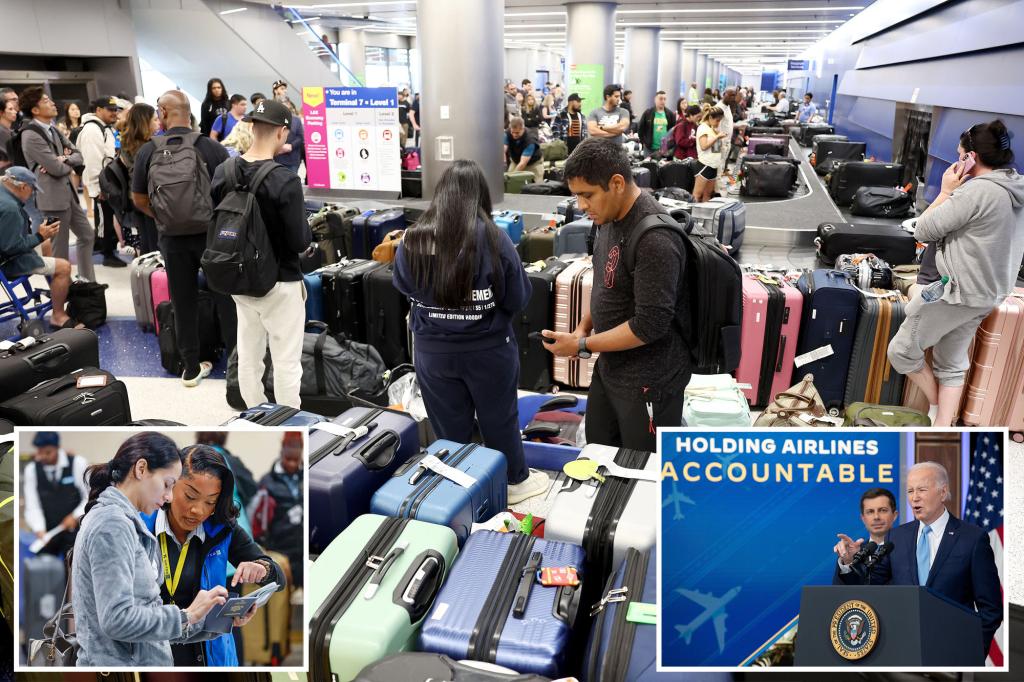The airline industry is set to make a record-shattering $118 billion from so-called “junk fees” this year — despite President Joe Biden’s vow to clamp down on the surreptitious surcharges, according to a study.
The global haul is 7.7% more than the previous record set in 2019, when airlines raked in $109.5 billion in ancillary revenue before the industry came to a pandemic-induced halt, according to a study conducted by airline consulting firm IdeaWorksCompany and car rental service CarTrawler.
The staggering revenue has been generated in part by checked-baggage fees and seat selection charges that force families to pay up if they want to sit together.
“Low-cost carriers continue to have the edge on driving ancillary revenue streams, accounting for approximately 31% of market share in this area,” the report said.
On Monday, President Biden announced a new initiative that would give air travelers more transparency into baggage and seating fees when they book their flights.
“You should know the full cost of your ticket right when you’re comparison shopping,” Biden said during a meeting of the White House Competition Council.
Biden first launched a broader effort to crack down on junk fees imposed by ticket companies, banks, airlines and other industries in September 2022.
“The Department of Transportation is taking action on airline junk fees that inflate prices for American families,” a DOT spokesperson told The Post on Tuesday.
“For example, we are working to ban family seating junk fees because parents shouldn’t have to pay more just to sit with their kids when they fly.”
The Post has sought comment from Airlines for America (A4A), a trade group that represents US-based commercial airliners including American, United, Delta and Southwest, among others.
In 2022, US travelers forked over $6.8 billion in baggage fees, according to the Department of Transportation.
The worst offender of these bag-related add-ons were American and United Airlines, which made $1.4 billion and $1.1 billion off baggage fees last year, respectively, according to DOT figures.
According to American’s website, most flights will charge non-status passengers $30 to check a bag. The airline, which updated its checked bag policy on Sept. 30, has made all bag fees non-refundable and apply on a per-person basis.
United charges a standard $35 for checked baggage, per its website.
Baggage fees accounted for roughly 2.5% of both American and United’s 2022 fiscal year revenue of $56.44 billion and $44.95 billion, respectively.
The US airlines collectively made $700 million on cancellation and change fees in 2022, according to the DOT.
The add-on fees are oftentimes not included in airline ticket prices listed on airliners’ websites. Instead, they’re tacked on upon checkout, charging travelers as much as hundreds of dollars more than what was originally advertised when they were selecting flights.
“Under the Biden-Harris Administration, the Department of Transportation has helped return more than $2.5 billion dollars in refunds to air travelers, set records in the amounts it has fined airlines for failing passengers, and is continuing to fight to expand passenger rights,” the DOT rep told The Post.
“We will keep working with airlines – and pressing them when necessary – to serve travelers well.”

